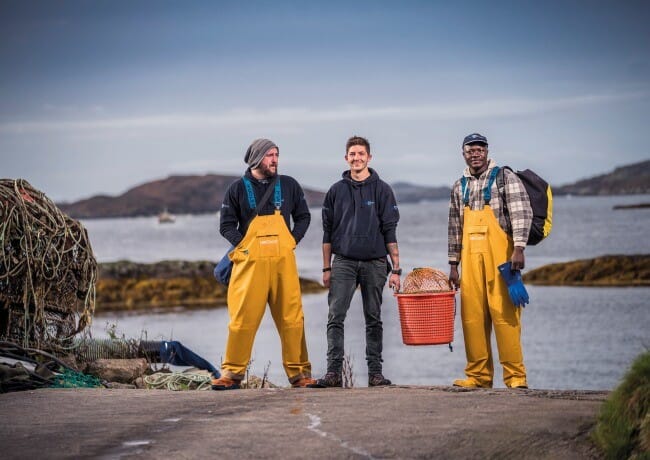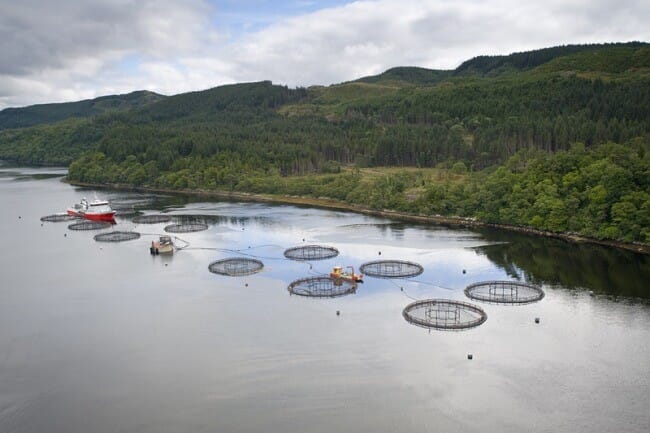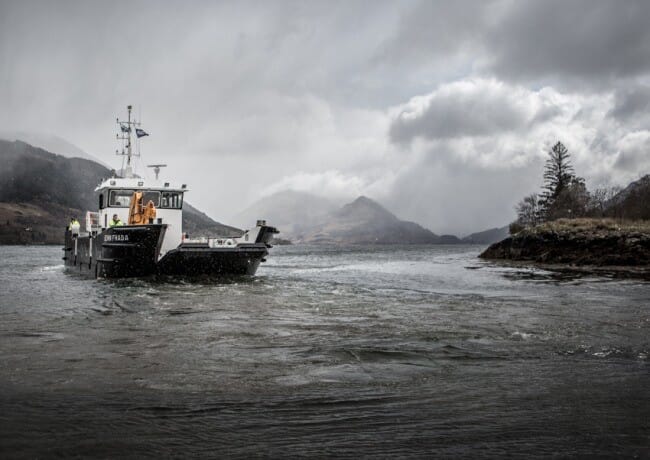
Salmon Scotland is calling for license fees to be redirected to the coastal communities where salmon farms operate © Salmon Scotland
Salmon farmers are calling for £10 million-a-year in licence fees to be reinvested in affordable housing to tackle the growing property crisis in rural Scotland.
Trade body Salmon Scotland has launched a campaign to overhaul the current system so that the millions sent to Crown Estate Scotland in Edinburgh are instead directly ringfenced for coastal areas where farms operate.
This would echo the system in Norway where rents are used to benefit local communities.
New analysis by Salmon Scotland shows that average home prices in areas where salmon farms operate have risen more sharply than the national average, while the average time it takes for local councils to provide housing assistance has soared.
The lack of available, affordable housing is affecting the ability of people to live and work in Highland and Island communities.

Though the sector is a major employer, the housing crisis in rural Scotland is curtailing recruitment efforts © Salmon Scotland
While the farm-raised salmon sector is already one of the largest private sector employers in many rural parts of north and west Scotland, the shortage of housing is preventing key vacancies from being filled and acting as a drag on the local economies.
Scotland’s cluttered licensing regime and planned rent hikes means that more than £20 million per year is soon expected to be paid by salmon farmers to various regulators.
At present, salmon farming contributes more than £5 million directly to Crown Estate Scotland (CES), or more than a fifth of the body's revenues, with this fee set to nearly double.
But CES overall revenues are expected to soar from £26 million in 2021 to 2022 to £102 million in 2022 to 2023 due to ScotWind offshore licensing fees. Net CES revenues are currently handed to the Scottish Government and redistributed across the country, however Salmon Scotland believes that a greater share of aquaculture contributions should be ringfenced to support coastal communities.

Salmon Scotland is calling for the UK government to reform its aquaculture licensing policy © Salmon Scotland
The trade body is therefore calling for government reform to ensure that around £10 million is reinvested in rural communities, with a particular focus on housing.
A recent independent review of aquaculture regulation in Scotland by Professor Russel Griggs recommended a new single licencing payment for the sector, which he said should “address community benefit as well” – echoing the set-up in Norway.
Tavish Scott, Chief Executive of Salmon Scotland, said, “the farm-raised Scottish salmon sector creates jobs and wealth right across Scotland, but we believe our neighbours – the people who live closest to our salmon farms – should be the ones who benefit the most.
“Rather than this money going into a central pot in Edinburgh, seabed rents paid to the Crown Estate should be returned to benefit our coastal communities. The most pressing crisis facing our Highland and Island communities is the complete lack of access to available, affordable housing.
“So we’re calling for the money raised through salmon farm rents to be re-invested in local communities to address the biggest issue affecting our coastal communities – access to affordable housing. Salmon farmers are embedded in their local communities and want the economic benefit generated by Scotland’s biggest food export to be shared in the local communities where they operate.”




